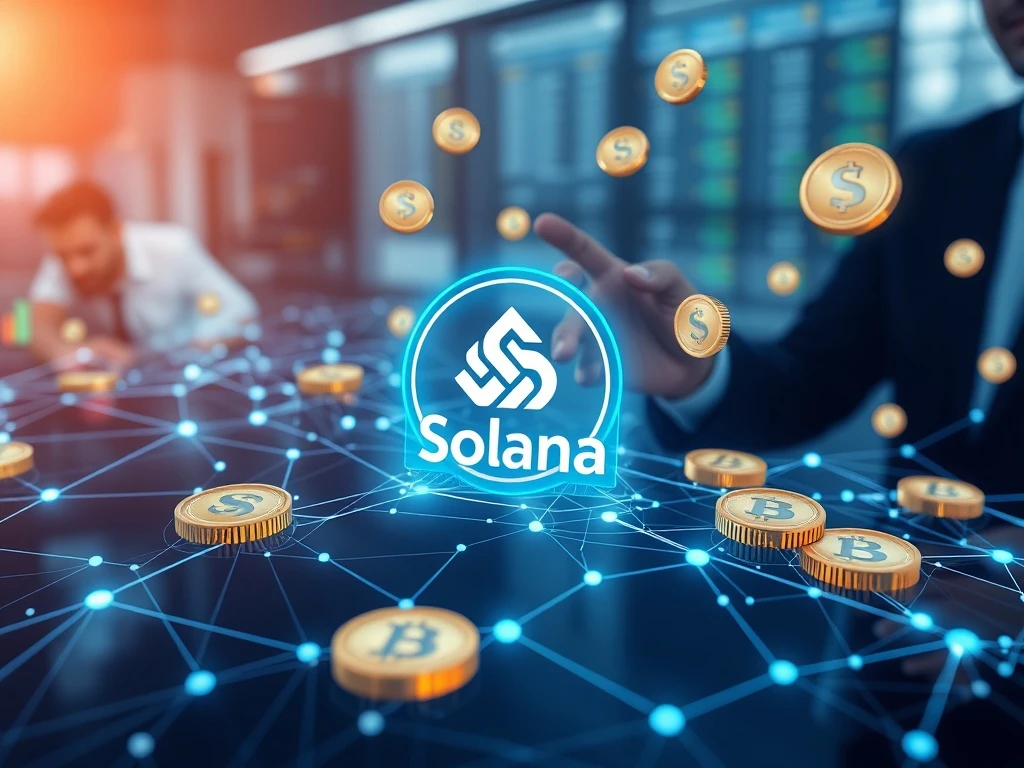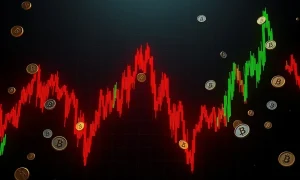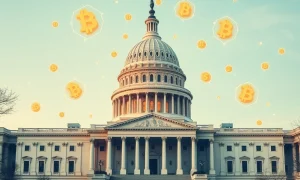Galaxy Digital’s groundbreaking move to tokenize its GLXY shares on Solana represents a seismic shift in capital markets infrastructure. This pioneering initiative marks the first time a Nasdaq-listed company has tokenized SEC-registered equity on a major blockchain, potentially reshaping how institutions and retail investors access and trade traditional assets.
Understanding Tokenized Equities and Their Market Impact
Tokenized equities represent traditional stocks converted into digital tokens on blockchain networks. Galaxy’s partnership with Superstate enables 1:1 backing of GLXY tokens with actual Class A common shares. This hybrid model combines blockchain efficiency with regulatory compliance, creating new opportunities for 24/7 trading and real-time settlement. The tokenized equities market projects massive growth from $500 million in 2025 to $1.34 trillion by 2030.
Institutional Advantages of Tokenized Equities
Institutional investors gain significant benefits from tokenized equities. Solana’s high-speed infrastructure enables instant settlement, eliminating traditional T+2 cycles. Superstate ensures KYC/AML compliance through immutable onchain records. Automated Market Makers could eventually facilitate trading, aligning with the SEC’s Project Crypto modernization agenda. However, JPMorgan reports show institutional adoption remains cautious due to regulatory uncertainties.
Retail Access to Tokenized Equities
Retail investors access fractional ownership through platforms like Robinhood and Coinbase. Tokenized equities bypass traditional minimum investment thresholds, democratizing market access. Investors should understand that some tokenized products lack voting rights and dividend entitlements. Regulatory fragmentation between U.S. and EU frameworks adds complexity to cross-border transactions.
Market Growth and Future Projections
The tokenized equities ecosystem expands rapidly with multiple platforms entering the space. Ondo Finance and Block Street aim to tokenize over 1,000 U.S. stocks and ETFs by 2025. Janus Henderson’s tokenization of Collateralized Loan Obligations diversifies the asset class further. Market fragmentation and algorithmic trading risks require careful regulatory oversight to ensure fair participation.
Regulatory Landscape for Tokenized Equities
Regulatory frameworks evolve to address tokenized equities challenges. The U.S. CLARITY Act’s uncertainty contrasts with the EU’s harmonized MiCA framework. Central banks balance blockchain innovation with systemic stability concerns. Regulatory clarity remains crucial for widespread institutional adoption of tokenized financial products.
Frequently Asked Questions
What are tokenized equities?
Tokenized equities are traditional stocks represented as digital tokens on blockchain networks, maintaining 1:1 backing with underlying shares while enabling blockchain-based trading and settlement.
How do tokenized equities differ from traditional stocks?
Tokenized equities offer 24/7 trading, instant settlement, and fractional ownership but may lack some traditional shareholder rights like voting privileges in certain structures.
Are tokenized equities regulated?
Yes, Galaxy’s tokenized GLXY shares maintain SEC registration and compliance through Superstate’s digital transfer agent services, ensuring regulatory adherence.
Can retail investors access tokenized equities?
Retail investors access tokenized equities through platforms like Robinhood and Coinbase, often with lower investment minimums and fractional share capabilities.
What risks do tokenized equities present?
Risks include regulatory uncertainty, potential lack of traditional investor protections, and cross-border compliance complexities depending on jurisdiction.
How does Solana benefit tokenized equities?
Solana provides high-speed, low-cost infrastructure enabling real-time settlement and efficient trading operations for tokenized financial instruments.








